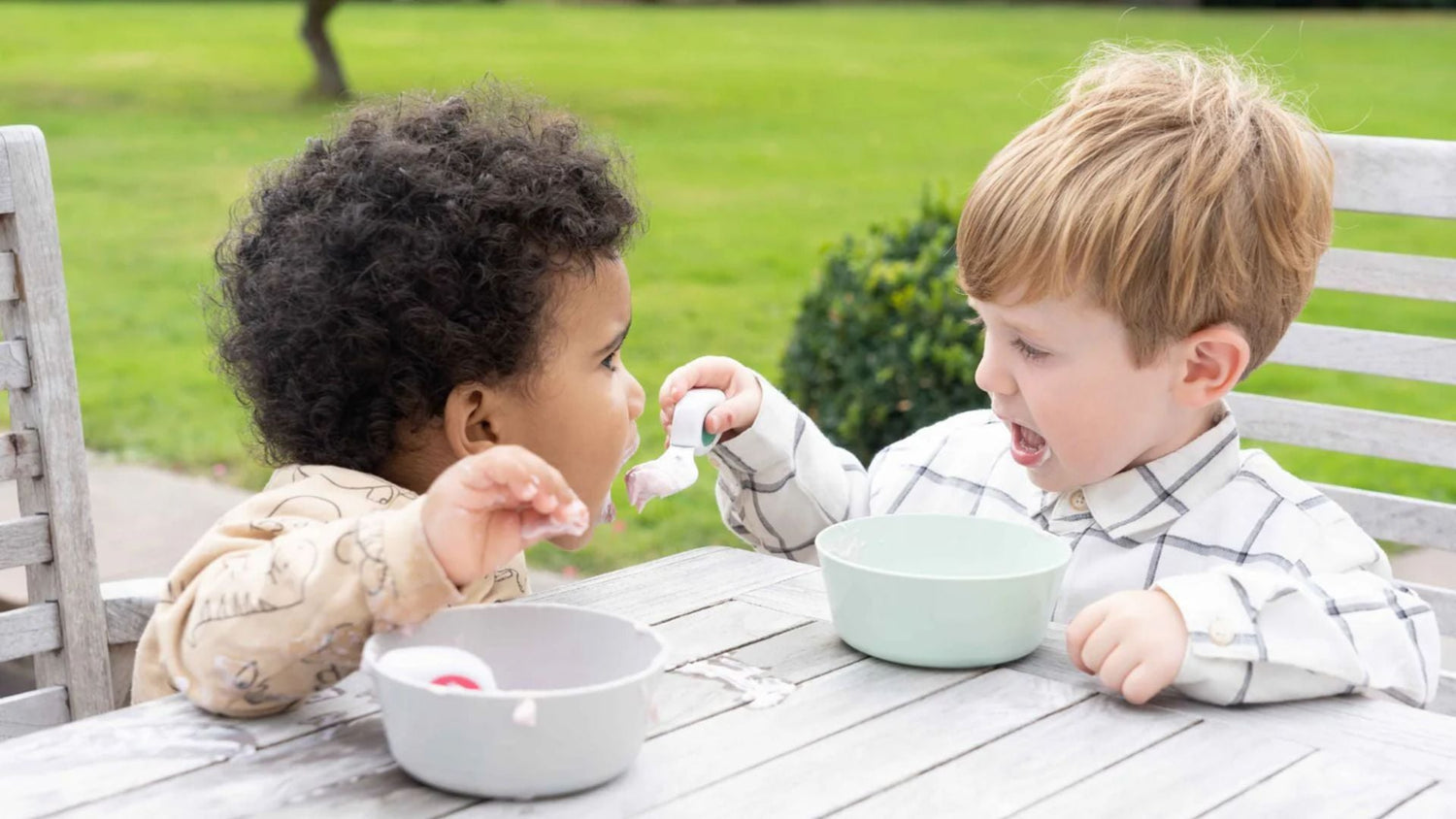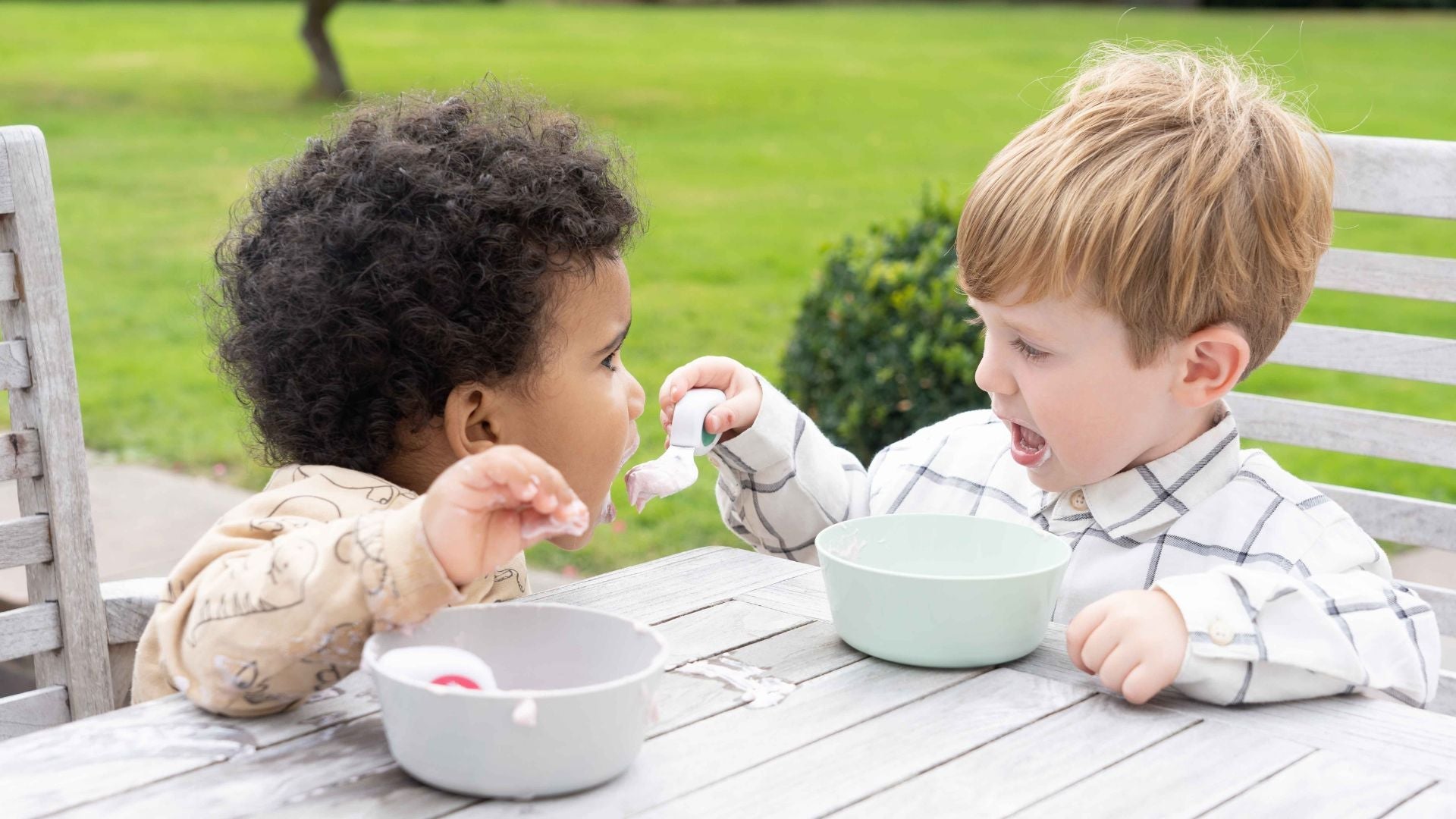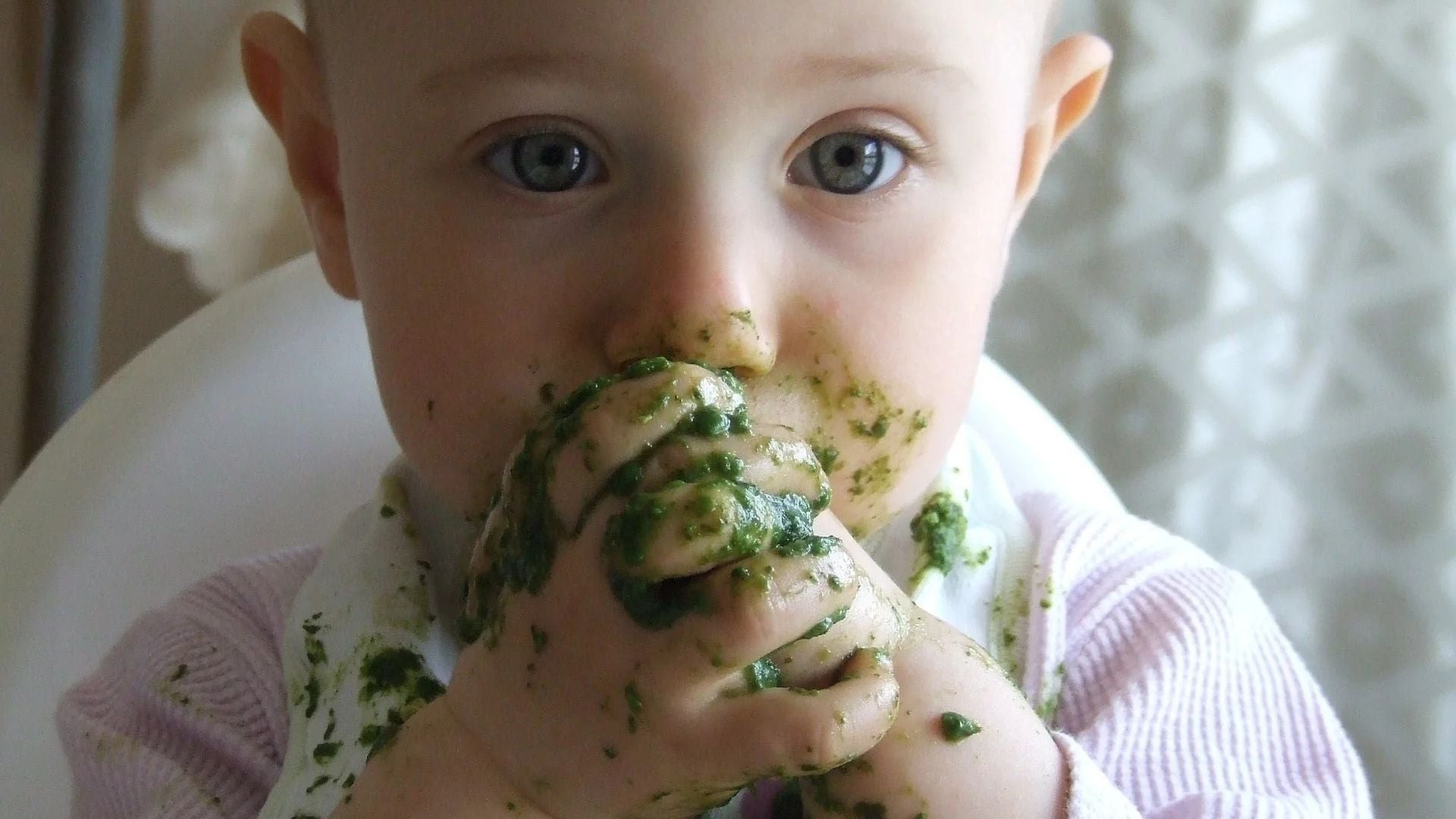"Mine!" If this powerful little word features prominently in your daily soundtrack, you're not alone. Teaching toddlers about sharing is one of parenting's trickier challenges - it can be frustrating at times, but it's completely normal.
In this guide, we'll explore:
- Why sharing can be tricky for toddlers
- When they're developmentally ready to grasp this concept
- How we can support them on their journey to becoming generous little humans
Because while sharing might not come naturally at first, it's a skill that can be nurtured with patience, understanding, and the right approach.
Understanding the 'mine' phase

Before we talk about how to encourage sharing, let's talk about the 'why' behind those possessive moments. Around age two, toddlers begin to understand the concept of ownership - that things can belong to them. It's actually an important developmental milestone! This newfound sense of "mine" helps them develop their identity and understand their place in the world.
When your toddler clutches their toy and declares "Mine!", they're not being selfish - they're showing you they understand ownership. It's like they've just discovered their own little kingdom, and they're not quite ready to open the borders for trade negotiations!
When are toddlers ready to share?
Here's something that might surprise you: according to child development experts, most children aren't developmentally ready to truly understand sharing until around age three or four. Before this age, they're still working on understanding that they are separate individuals from others, let alone grasping the complex social dance of giving and taking turns.
This doesn't mean we can't plant the seeds of sharing earlier - we absolutely can! But understanding this timeline can help us set realistic expectations and approach sharing with more patience and compassion.
Building blocks of sharing

While your toddler might not be ready for full-blown sharing, there are several foundation skills we can help them develop:
Taking turns
Turn-taking is often an easier concept for toddlers to grasp than sharing. It's more concrete - "your turn, my turn" - and has a clear beginning and end. Try rolling a ball back and forth or taking turns stacking blocks. These simple games help build the groundwork for sharing later on.
Understanding feelings
Help your toddler recognise emotions in themselves and others. "Look, Sam is sad because he'd like a turn with the car" or "You're feeling frustrated because you want to keep playing with the blocks." This emotional awareness is crucial for developing empathy, which makes sharing feel more natural.
Practising patience
Waiting is hard (even for adults!), but it's a crucial skill for sharing. Practise small waiting moments throughout the day - maybe while you're preparing a snack or tying shoelaces. Celebrate these little victories of patience!
Practical strategies for encouraging sharing

Model sharing behaviour
Children learn by example, so look for opportunities to model sharing in your daily life. Share your snack, take turns with activities, and narrate what you're doing: "I'm sharing my apple with you because sharing helps us both enjoy this treat!"
Make it playful
Turn sharing into a game rather than a chore. You might:
- Play "pass the parcel" with a favourite toy
- Take turns adding ingredients while cooking together
- Share blocks to build something together
- Use a timer for turns with favourite toys (this can make turn-taking more concrete and predictable)
Create sharing opportunities
Set up play situations where sharing feels natural and fun. For example, having two spoons during pretend cooking or multiple crayons during art time can make sharing feel less threatening than having to give up a precious toy.
Navigating sharing challenges

When sharing is hard
There will be times when your toddler absolutely does not want to share - and that's okay! Just like we adults have things we prefer not to share (favourite mug, anyone?), toddlers can have special toys they're not ready to share. Consider having some toys that are just for them and others that are "sharing toys."
Handling playdate dynamics
Before playdates, you might put away special toys that your child isn't ready to share. This can help prevent conflicts and make sharing other toys easier. Remember, parallel play (playing alongside but not necessarily with others) is perfectly normal for toddlers.
Supporting sharing at mealtimes

Mealtimes can provide natural opportunities for practising to share. Using toddler cutlery can help toddlers feel more in control and confident, making them more open to sharing experiences. Try:
- Taking turns adding ingredients to recipes
- Sharing portions of snacks
- Passing items at the table
- Having family mealtimes where everyone shares dishes
Remember: Progress, not perfection
Learning to share is a journey, not a destination. Some days will go smoothly, others might feel like you're taking steps backward. That's completely normal! The key is consistency, patience, and celebrating small victories along the way.
Growing together

As you navigate teaching your toddler about sharing, remember that every child develops at their own pace. What matters most is creating a supportive environment where they can practise this important skill safely and gradually.
Looking for more tips on supporting your toddler's social development? Check out our tips and advice on nurturing independence and social skills. Together, we can help our little ones grow into confident, caring individuals - one shared toy at a time!




Leave a comment
This site is protected by hCaptcha and the hCaptcha Privacy Policy and Terms of Service apply.